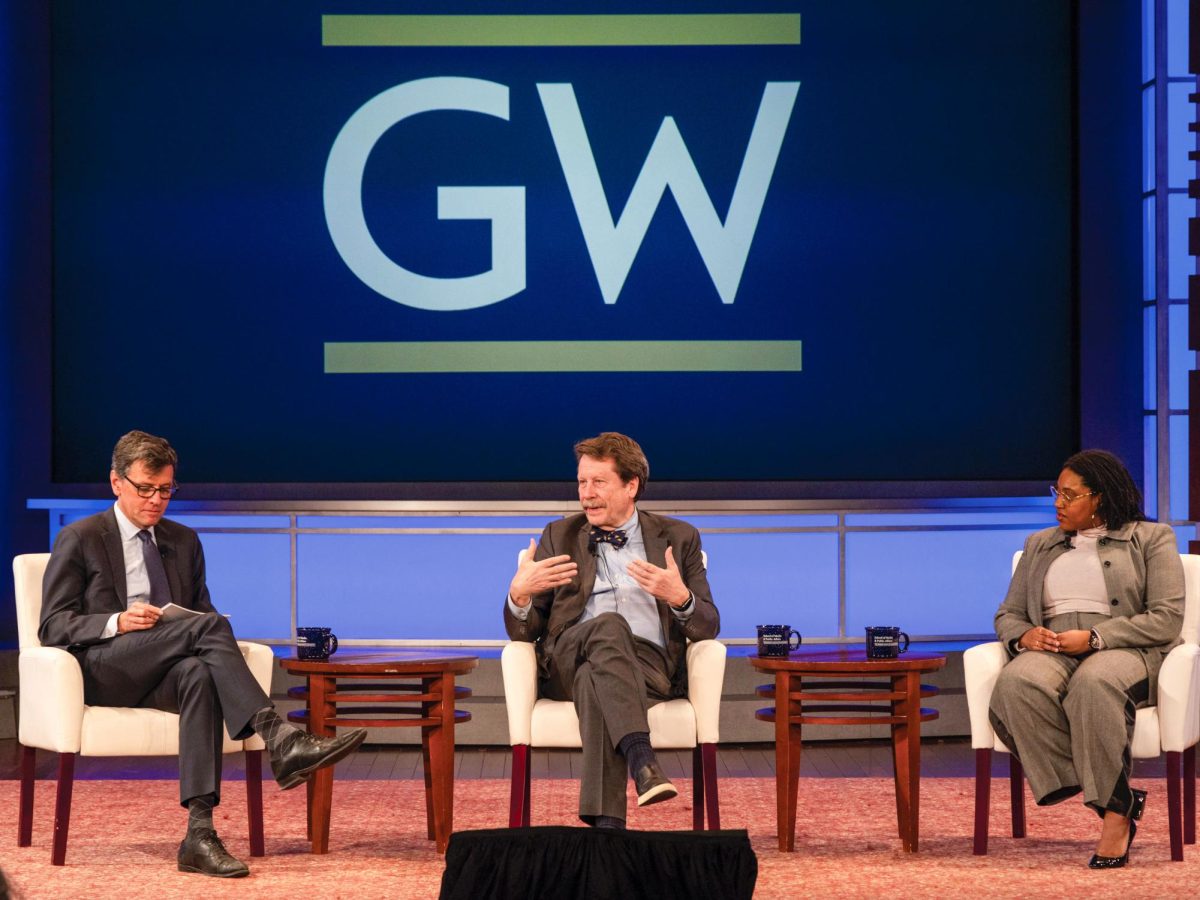The commissioner of the Food and Drug Administration discussed health misinformation and elevating trust in public institutions at the School of Media and Public Affairs on Tuesday.
FDA Commissioner Robert M. Califf said misinformation about public health on social media has sowed distrust in the health care system, which institutions like the FDA can remedy by re-establishing relationships between health care providers and their communities. Peter Loge, the director of SMPA, hosted and moderated the conversation with Aaliyah Guzman, a junior majoring in political communication, in the Jack Morton Auditorium.
Califf said social media allows people without medical experience to amplify false information about health.
“You don’t have to know anything besides how to get on the internet in order to express an opinion that can influence enormous numbers of people,” he said.
Califf said as he travels around the world, people note that the United States thrives in creating innovative healthcare but fails at implementing the innovations because of misinformation spread online. He pointed to COVID-19 vaccine misinformation as an example of misinformation’s ability to hinder public health interests, like immunization.
About 33 percent of adults say that the statement, “COVID-19 vaccines have caused thousands of sudden deaths in otherwise healthy people,” is definitely or probably true, according to a 2023 poll from KFF.
“It doesn’t matter we have a vaccine that reduces your risk of death and hospitalization by between 50 and 80 percent for COVID if you don’t get vaccinated,” Califf said.
Califf said members of Congress condemn the actions of the FDA for not being trusted by the public when he testifies at congressional hearings. He said members of Congress have said he is “terrible,” “lazy” and does not do “anything good.”
He also said he faces death threats online and in person, which are “normal” in his life because of people’s distrust in the FDA.
Califf said the scientific community aims to seek and promote the truth, a mission that is difficult for public health officials to achieve amid the current culture of misinformation. He said universities like GW need to fund research identifying prime avenues to relay scientific information to the public.
“When we know that in the U.S. we’re creating all the tools for the world in terms of drugs, devices, biologics, et cetera, but it’s that next step where we’re failing,” Califf said. “It’s crazy that we don’t have more university programs that attract smart people to get into this game because none of us know exactly what to do.”
Guzman said people trust other social media users on the internet more than faceless government institutions because viewers are more inclined to trust a person they see on their screen from the human connection.
“It’s one thing to say, ‘get vaccinated,’” Guzman said. “It’s another thing when people really deeply feel like they know the person.”
She said institutions like the FDA can gain people’s trust by recognizing the hurt the agency has inflicted on individual communities, like underrepresenting minority communities in clinical trials. Guzman said healthcare providers can rebuild communities’ trust by integrating healthcare professionals into communities that they identify with.
“They are a huge asset to be able to rebuild that trust in the medical industry as a whole because their feet are on the ground and they’re the person at your bedside when something’s going wrong,” Guzman said.





